Are you curious about how long a dog rabies vaccine actually lasts? Well, wonder no more! In this article, we will explore the duration of effectiveness for a dog rabies vaccine. Understanding the length of protection provided by the vaccine is crucial for ensuring the health and safety of your furry friend. So, let’s dive right in and discover the answer to the question: how long does a dog rabies vaccine last?
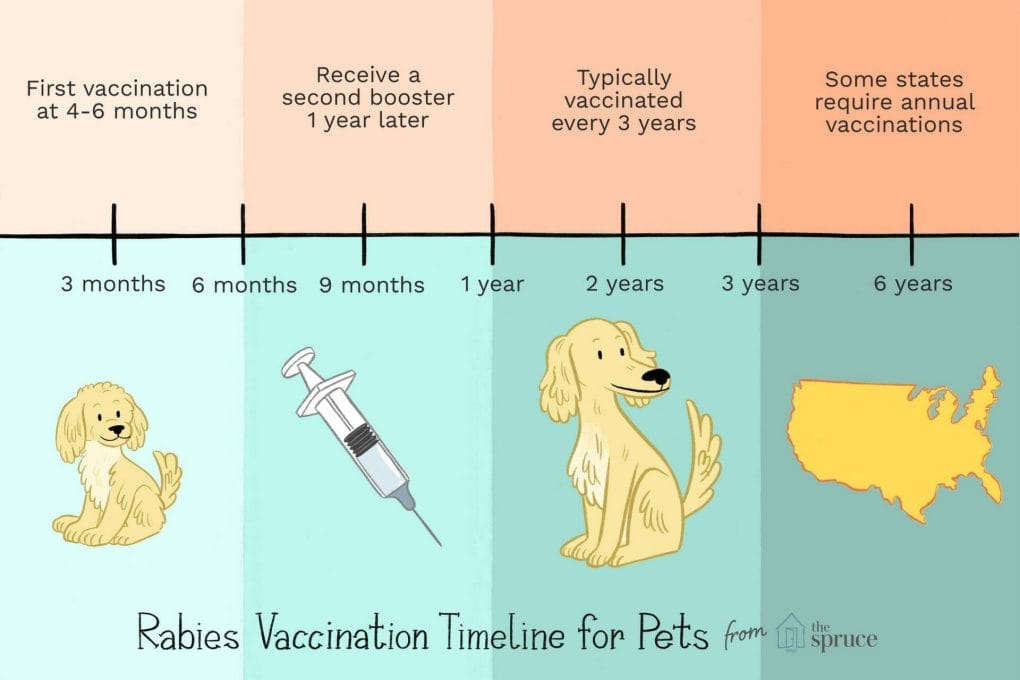
Understanding Rabies in Dogs
What is Rabies?
Rabies is a highly contagious and fatal viral disease that affects the central nervous system of mammals, including dogs. It is caused by the rabies virus, which is mainly transmitted through the bite of an infected animal. Rabies is a zoonotic disease, meaning it can be transmitted from animals to humans. It is essential to understand the impact of rabies on dogs to protect their health and prevent the spread of the disease.
How Does Rabies Affect Dogs?
Once a dog is infected with the rabies virus, it targets the central nervous system, including the brain, leading to severe behavioral changes, aggression, excessive salivation, and paralysis. As the disease progresses, dogs may exhibit difficulty swallowing, a change in voice, and eventual death. Rabies is a serious and highly fatal disease in dogs, making it crucial to take preventive measures to safeguard their health.
Transmission of Rabies among Dogs and Humans
Rabies can be transmitted among dogs through the bite of an infected animal, such as a stray dog or other wildlife species like bats, raccoons, or foxes. It can also be spread through contact with infected saliva or neural tissue. Dogs infected with rabies can potentially transmit the virus to humans through biting or scratching. Therefore, understanding the transmission mechanisms of rabies is essential in preventing the spread of the disease among both dogs and humans.
Importance of Rabies Vaccine for Dogs
Role of Rabies Vaccine in Dogs’ Health
The rabies vaccine plays a vital role in protecting dogs from the deadly rabies virus. By administering the vaccine, you provide your dog with immunity against the disease, preventing infection and its subsequent effects. The vaccine stimulates the dog’s immune system to produce antibodies that can neutralize the rabies virus, offering essential protection to your furry friend.
Implications of Neglecting Rabies Vaccination
Neglecting rabies vaccination can have severe consequences for both dogs and humans. Without proper immunization, dogs can contract the rabies virus, leading to health complications and ultimately death. Additionally, unvaccinated dogs pose a risk to human health, as they can transmit the virus through bites or scratches. By neglecting to vaccinate your dog against rabies, you put their health and the well-being of your family and community at risk.
Legal Requirements for Rabies Vaccinations in Various Countries and Regions
In many countries and regions worldwide, rabies vaccinations for dogs are not only strongly recommended but also legally required. These regulations aim to control and prevent the spread of the disease, ensuring the safety of both animals and humans. Failure to comply with the legal requirements may result in penalties, including fines and the potential seizure or euthanasia of unvaccinated dogs. It is crucial to familiarize yourself with the specific laws and regulations regarding rabies vaccinations in your country or region.
Components and Types of Dog Rabies Vaccines
Key Ingredients in Rabies Vaccines
Rabies vaccines typically contain an inactivated or attenuated form of the rabies virus. These vaccines may also include adjuvants, substances that enhance the immune response and increase vaccine effectiveness. The principal ingredient in the rabies vaccine is the antigen, which stimulates the production of antibodies, providing protection against the rabies virus. Different vaccine formulations may vary in the specific components and concentrations used.
Single dose Vs Multi-dose Rabies Vaccines
Rabies vaccines are available in both single-dose and multi-dose formulations. Single-dose vaccines contain a single vial or syringe intended for one-time use. Multi-dose vaccines, on the other hand, contain multiple doses in a single vial, allowing for the immunization of multiple animals. The choice between the two depends on factors such as the number of dogs to be vaccinated, cost considerations, and convenience.
Live-attenuated Vs Killed/inactivated Rabies Vaccines
Rabies vaccines can be classified into two main types: live-attenuated and killed/inactivated vaccines. Live-attenuated vaccines contain a weakened form of the live virus, which has been modified to be non-pathogenic while still stimulating the immune response. Killed/inactivated vaccines, on the other hand, consist of the virus that has been inactivated or killed, rendering it incapable of causing disease. Both types of vaccines have proven efficacy in preventing rabies, and the choice between them depends on various factors, including the health status of the dog and the preference of the veterinarian.
Vaccination Schedule for Rabies in Dogs
When to Start Rabies Vaccination for Puppies
Rabies vaccination for puppies typically begins between 12 and 16 weeks of age. This timing ensures that the puppy’s immune system is sufficiently developed to produce a protective immune response to the vaccine. Starting the vaccination at the recommended age helps establish a foundation of immunity against rabies, providing long-term protection as the puppy grows into adulthood.
Recommended Rabies Vaccination Schedule for Adult Dogs
For adult dogs with no previous rabies vaccination history, the initial rabies vaccine is typically administered as soon as possible. Following the initial vaccination, a booster is usually given one year later to enhance and prolong the dog’s immunity against rabies. Subsequent booster shots are generally administered every one to three years, depending on local regulations and the specific vaccine used.
Frequency of Rabies Vaccination for Dogs in High-risk Areas
In high-risk areas with a higher prevalence of rabies, more frequent vaccination may be recommended to ensure continuous protection. Some regions may require annual rabies vaccinations for dogs, particularly in areas with a higher incidence of the virus. It is crucial to consult with your veterinarian and adhere to local regulations to determine the appropriate frequency of revaccination for your dog.
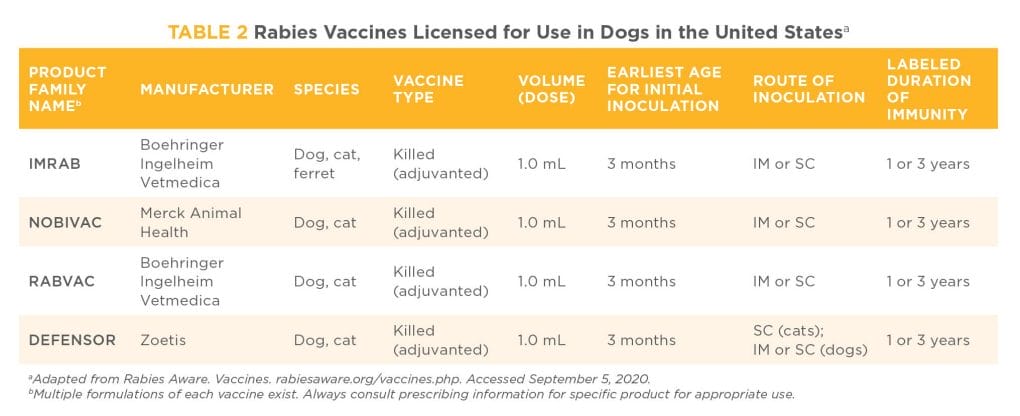
Duration of Effectiveness of Rabies Vaccines
Effectiveness Period of the First Shot
Following the initial rabies vaccination, dogs typically develop protective immunity after a few weeks. However, the duration of effectiveness for the first shot may vary depending on factors such as the type of vaccine used, the health status of the dog, and local regulations. It is essential to follow up with booster vaccinations as recommended to ensure continuous protection against rabies.
Longevity of Consecutive Vaccinations
Subsequent rabies vaccinations, or booster shots, contribute to the longevity of a dog’s immunity against rabies. With each booster, the immune response is reinforced, prolonging the duration of protection. While most dogs remain protected for several years following vaccination, the exact longevity of immunity can vary. Regular booster vaccinations are crucial to maintain sufficient antibody levels and ensure continuous protection against rabies.
Factors Affecting the Duration of Rabies Vaccine Effectiveness
Several factors can influence the duration of effectiveness of rabies vaccines in dogs. These factors include the specific vaccine used, the dog’s immune response, individual variations in immune system function, exposure to the rabies virus, and the presence of any underlying health conditions. It is important to consult with your veterinarian to determine the appropriate vaccination schedule and frequency based on these factors.
Signs of Rabies Vaccine Success or Failure in Dogs
Visible Signs of Successful Rabies Vaccination
A successful rabies vaccination should induce a protective immune response in dogs, leading to the production of antibodies against the rabies virus. While these antibodies are not visible to the naked eye, their presence ensures that the dog is protected and capable of mounting an effective immune response when exposed to the virus. The overall health and well-being of the dog, combined with a consistent vaccination record, are visible signs of a successful rabies vaccination.
Symptoms Indicating Lack of Rabies Protection
In rare cases, dogs may fail to develop sufficient immunity following rabies vaccination, resulting in a lack of protection against the virus. Dogs that are not adequately protected may exhibit symptoms similar to those of a rabies infection, including behavioral changes, aggression, excessive salivation, and neurological abnormalities. If you observe any signs that may indicate a lack of rabies protection despite vaccination, it is crucial to seek veterinary attention promptly.
Diagnostic Tests to Confirm Rabies Antibody Levels
To confirm the presence of rabies antibodies and assess the level of protection, veterinarians may perform diagnostic tests such as the rabies antibody titer test. This blood test measures the concentration of rabies antibodies in the dog’s bloodstream. The results can provide valuable information about the dog’s level of immunity and guide further vaccination decisions if necessary.

Possible Side Effects of Rabies Vaccine in Dogs
Common Short-term Side Effects
Like any vaccination, the rabies vaccine can have potential side effects in dogs, although they are generally mild and transient. Common short-term side effects may include mild swelling or discomfort at the injection site, slight fever, lethargy, and reduced appetite. These side effects usually resolve within a few days and do not pose significant health risks to dogs.
Potential Long-term Side Effects
Long-term side effects of rabies vaccination in dogs are rare but can occur. These side effects may include allergic reactions, autoimmune disorders, or the development of certain tumors at the injection site. Although these occurrences are uncommon, it is important to monitor your dog following vaccination and seek veterinary advice if you notice any concerning changes in their health or behavior.
Measures to Manage Side Effects of Rabies Vaccines
If your dog experiences any side effects following rabies vaccination, there are measures you can take to manage and alleviate these effects. Providing a comfortable, quiet environment for your dog, offering plenty of fresh water, and monitoring their general wellbeing can help them recover quickly. If the side effects persist or worsen, it is crucial to consult with your veterinarian for appropriate guidance and support.
Special Considerations for Rabies Vaccine Administration
Considerations for Pregnant and Nursing Dogs
Pregnant or nursing dogs have specific considerations when it comes to rabies vaccination. While rabies vaccination is generally safe for pregnant dogs, it is advisable to consult with your veterinarian to determine the appropriate timing for vaccination. In some cases, vaccination may be delayed until after the puppies are born or weaned to ensure the health and safety of both the mother and her offspring.
Rabies Vaccination of Sick or Immunocompromised Dogs
Dogs that are sick or immunocompromised may require special considerations before receiving the rabies vaccine. It is crucial to consult with your veterinarian in such cases to assess the dog’s health status and determine the appropriateness of vaccination. Your veterinarian can guide you on the best course of action and may recommend additional measures to protect the dog’s health.
Precautions in Case of Allergic Reactions to Rabies Vaccines
Allergic reactions to rabies vaccines are rare but can occur in some dogs. If your dog has a known history of allergies or has previously exhibited allergic reactions to vaccinations, it is important to inform your veterinarian before administering the rabies vaccine. In such cases, your veterinarian may recommend alternative vaccine options or take additional precautions to minimize the risk of an allergic reaction.
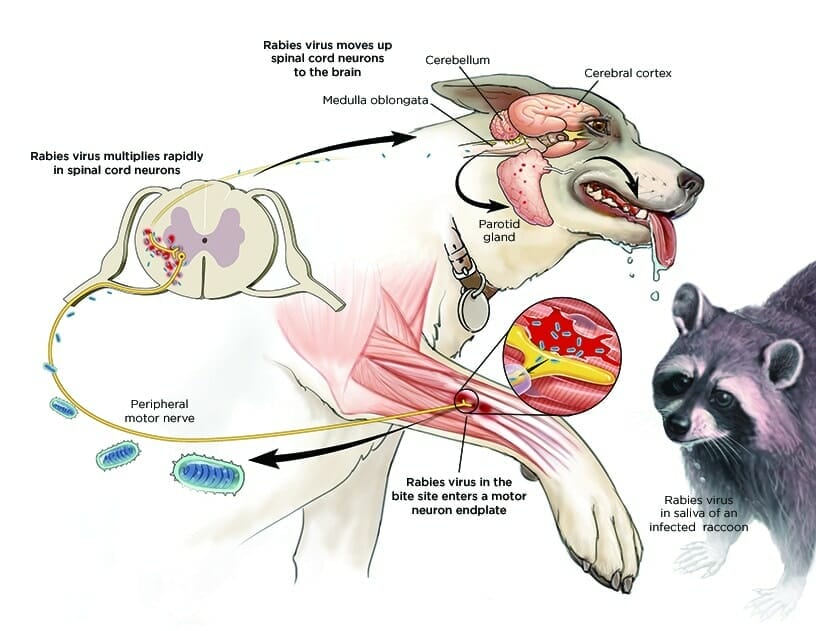
Dog Rabies Vaccine Laws, Regulations, and Exemptions
Rabies Vaccination Laws by Country or State
Rabies vaccination laws and regulations vary by country and even within different states or regions. These laws are implemented to control and prevent the spread of rabies, protecting both animal and human populations. Some countries or regions may require mandatory rabies vaccination for all dogs, while others may have specific guidelines based on factors such as age, location, and purpose of the dog. It is essential to familiarize yourself with the specific laws and regulations governing rabies vaccinations in your area.
Penalties for Non-Vaccination
Non-compliance with rabies vaccination laws can result in penalties and consequences. The penalties may vary based on the local regulations and can range from fines to legal action, such as the removal or euthanasia of unvaccinated dogs. It is imperative to abide by the vaccination requirements of your jurisdiction to ensure the safety of your dog, comply with the law, and protect public health.
Exemptions Allowed under Certain Conditions
In some cases, exemptions from rabies vaccination requirements may be allowed under certain conditions. These exemptions are generally granted for dogs with specific health conditions or for dogs who cannot safely receive the vaccine due to adverse reactions. However, the process and criteria for obtaining exemptions vary and often require evaluation and approval by a licensed veterinarian or veterinary authority.
Maintaining Dog Rabies Vaccination Records
Importance of Maintaining Rabies Vaccine Records
Maintaining accurate and up-to-date rabies vaccination records for your dog is of utmost importance. These records serve as proof of vaccination, help demonstrate compliance with legal requirements, and ensure the continuous protection of your dog against rabies. In the event of a bite incident or exposure to wildlife, having readily accessible vaccination records can help facilitate proper medical treatment and prevent unnecessary quarantine or euthanasia.
Components of a Complete Rabies Vaccination Record
A complete rabies vaccination record should include essential information such as the dog’s name, breed, identification number, date of vaccination, vaccine manufacturer, vaccine batch number, veterinarian’s signature, and contact information. This comprehensive record helps provide a clear and accurate history of your dog’s rabies vaccinations, ensuring compliance with legal requirements and facilitating prompt medical care if needed.
Digital Versus Paper Rabies Vaccination Records
Both digital and paper records can be used to maintain a dog’s rabies vaccination history. Digital records offer the advantage of easy accessibility and storage, allowing for quick retrieval and sharing of information with veterinary professionals or authorities as needed. Paper records, on the other hand, provide a tangible and convenient form of documentation, particularly in situations where digital access may not be available or reliable. The choice between digital and paper records ultimately depends on personal preference and accessibility to technology.
In conclusion, understanding the importance of rabies vaccination in dogs is crucial for their health and the well-being of humans. By following recommended vaccination schedules, monitoring for any signs of vaccine success or failure, and maintaining accurate vaccination records, you can ensure the continuous protection of your furry friend against this deadly disease. Remember, rabies vaccinations not only safeguard the health of your dog but also play a significant role in preventing the spread of rabies within the community. Stay informed, stay proactive, and prioritize the well-being of your beloved canine companion.

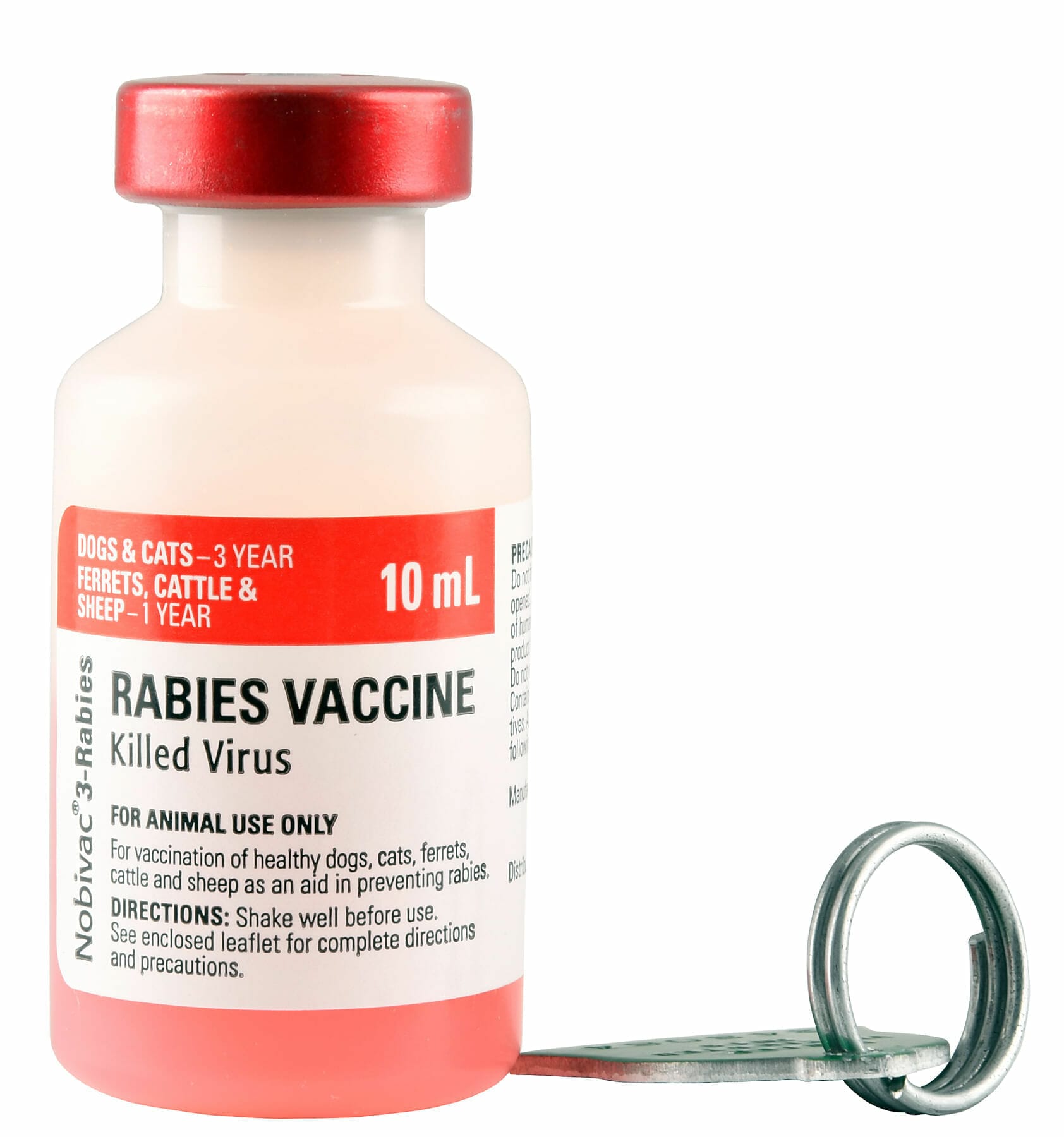

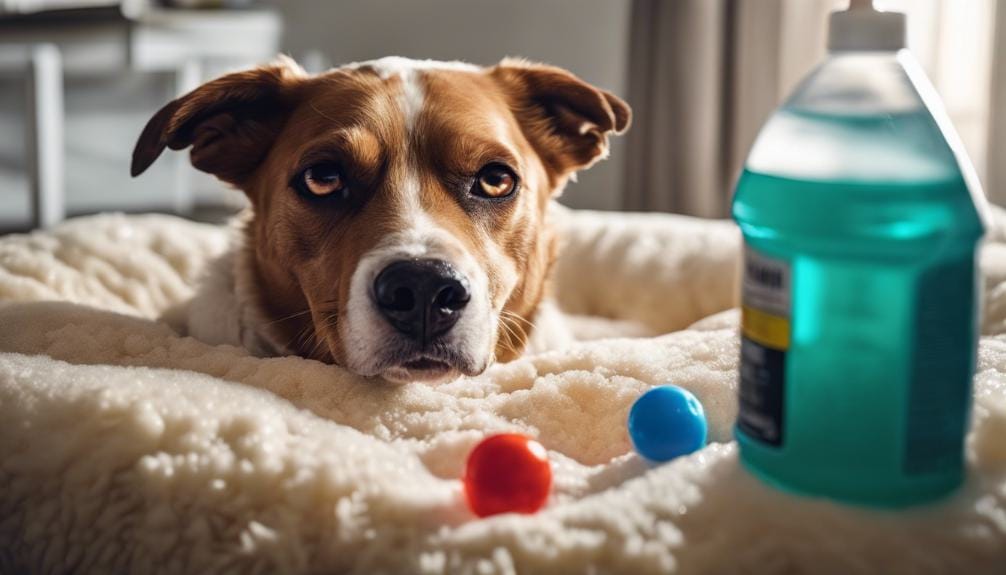

Leave a Reply
You must be logged in to post a comment.